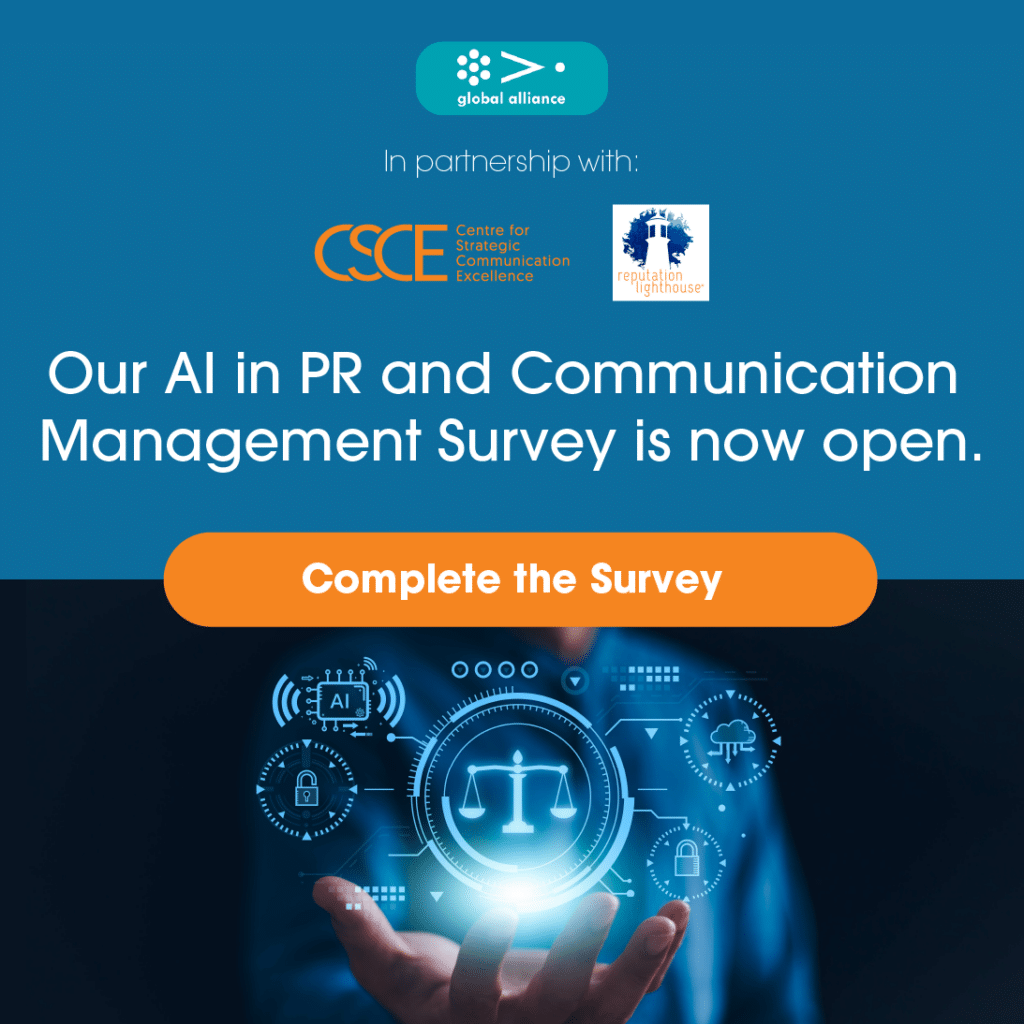According to Wayne Aspland, there’s a lot we don’t know in these early days of the Fourth Industrial Revolution. There are, however, four things we do know. Understanding them could make a big difference to the way you approach AI moving forward.
If there’s one topic that has everyone transfixed at the moment, it’s artificial intelligence.
How will the so-called Fourth Industrial Revolution change the communication profession (and everything else)? Will these intelligent machines be friend or foe? Conqueror or servant?
Given what’s at stake, the more informed we are, the better.
Which is why the recently released report – Communicating AI: Building the Playbook 2019 – is so timely. It’s choc-full of insights that will help us navigate a topic that is central to the future of comms.
As the report states, we’re still in the very early days of this revolution and, as you’d expect, there’s a lot we don’t know today.
There are, however, four things we do know. And it’s worth getting your head around what they are. Understanding them could make a big difference to the way you approach AI moving forward.
AI will be transformative
Even at this early stage, there’s no doubt that AI will transform our profession. It will re-shape not only the role we play in the organisation, but the way we play it and the skills we’ll need.
In fact, the next few years may well make the whole dot.com era look like a lazy Sunday afternoon picnic. That’s a big call, but I say it for two reasons:
- We’re not just talking about a bunch of new channels here. This is potentially a fundamental re-write of the way organisations (and comms teams) work.
- As a result, the amount of change we’ll experience over the next few years will dwarf anything we’ve seen to date.
This begs a question. How should we, as communicators, think about what’s coming?
Should we be all smiley and chill, like the folk at Timbuk3? You know what I mean… “The future’s so bright, I gotta wear shades”
Or should we panic, manically wave our arms around and yell “Danger Will Robinson” (GenX in-joke)?
The answer is probably a bit of both. There are huge opportunities ahead for both our profession and the organisations we support. But there are just as many threats lurking in the shadows.
As a result, we need to take the technological journey we’re embarking on seriously.
We need to understand as clearly as we can what’s coming, the opportunities and challenges we’ll face and how we can raise the bar to meet them. And we need to build flexibility and agility into our approach, because, without doubt, there will be times when we get it wrong.
We can’t leave our future to others
One of the report’s headline findings is the widespread belief that AI will be a comms bonanza. The thinking goes that AI will drive opportunities in two ways… by enabling comms teams and by increasing the need for comms support.
This glass half full view is great. However, there is also a sense in the report (and other conversations I’ve had) that comms pros are simply waiting for these opportunities to materialise. In other words, this brave new world will somehow just happen, and we’ll be able to sit back and reap the rewards.
I hate to be a buzzkill, but our future simply won’t work that way. Yes, AI could free comms teams from repetitive tasks. Yes, it could give us more time to go big picture and create greater value for the organisation. But none of this will happen automatically.
We have to step up, identify the future we want and make it happen. In other words, we have to grab the opportunity.
If we don’t actively shape the future of our profession, someone else will shape it for us. Someone like Finance (gulp!).
If that happens, we might well find we don’t like the result. We might wake up one day to hear we’ve been automated out of a job.
It’s up to us to learn, plan and lead – to advocate for the role we need to play in an AI-enabled world. And it’s something we need to start doing right now.
The future is all about people
You’ll hear a lot of talk about how technology will change the competitive balance between organisations. At the risk of being controversial, that’s simply untrue.
Every single piece of technology you have is being used, copied or improved on by others (including your competitors). Technology on its own isn’t a differentiator. It’s a ticket to the game.
Ultimately, the only real source of sustainable differentiation we have are the decisions and actions of our people.
This is why comms will be so important moving forward.
Our ability to help leaders empower and engage our people… to bring out the best in them… will ultimately be the key to our future sustainability.
Comms has three roles to play
The report focuses on the adoption of intelligent communication tools and how that will change our profession.
It’s worth noting, however, that comms will need to play two other AI-related roles in the years to come. These two roles will be seriously needed by organisations. As a result, they provide an opportunity for comms to really make its mark.
The first is the need to help our people navigate vast amounts of change. As I alluded to before, not just run of the mill technological transformation, but the wholesale redefining of roles, re-skilling, re-structuring and changing processes. We need to ensure that our people have a clear understanding of what is going on and why. And we need to play a role in supporting and engaging them through what will be a tumultuous time.
The second is to act as a forceful voice for our customers, people and stakeholders. It is critical that organisations avoid automating themselves into unethical practices or creating bots or processes that compromise customer, employee or stakeholder outcomes. Comms, with its cross-business remit and stakeholder relationships needs to step up and play a leading role in this space.
The bottom-line
While the AI journey is in its early days, we need to be taking a proactive stance now.
- Build an understanding by reading all the literature you can, sharing experiences and use cases, participating in working groups and talking to experts.
- Start to develop a picture of where AI is taking both you as a communications team and the organisation you work for.
- Develop a picture of the things you could be doing, the things you should be doing and the skills you need to do them.
- Take the initiative with leaders and roll out your plans. Who knows, your proactivity might just get you a seat at the transformation table (which you should have anyway).
So good luck and may the Fourth be with you (nifty Fourth Industrial Revolution pun).
Just one final point in closing. As an Aussie, it’s pleasing to see so much AI and comms thought leadership coming out of our little corner of the world. Thanks to people like Adrian Cropley, Sia Papageorgiou, Jo Curkpatrick and Lee Hopkins for everything you’re doing. Keep it up.
Read Wayne’s discussion paper: The robots are coming: AI, automation and the future of communications.





